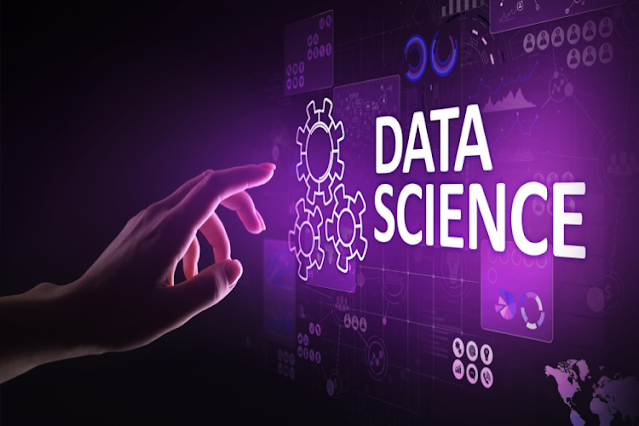Data Science for beginner — Overview of What to Learn.
Introduction
In today's data-driven world, data science has emerged as a crucial field that enables organizations to make informed decisions, gain valuable insights, and unlock the potential of their data. This article provides a comprehensive overview for beginners looking to embark on a journey in data science.
What is Data Science?
Data science is an interdisciplinary field that involves extracting knowledge and insights from data through various processes, algorithms, and tools. It combines elements of mathematics, statistics, computer science, and domain expertise to uncover patterns, make predictions, and drive actionable outcomes.
Importance of Data Science
Data science is pivotal in numerous industries, including finance, healthcare, marketing, e-commerce, and more. Organizations can improve operational efficiency, enhance customer experiences, optimize marketing strategies, and identify new business opportunities by analyzing and interpreting data.
Skills Required for Data Science
To excel in data science, several key skills are essential. Proficiency in programming languages like Python or R is crucial for data manipulation, analysis, and model development. Strong knowledge of mathematics and statistics is vital for understanding algorithms and building accurate models. Additionally, critical thinking, problem-solving abilities, and effective communication skills are highly valued in this field.
Popular Programming Languages for Data Science
Python and R are two widely used programming languages in the data science community. Python is known for its simplicity, versatility, and extensive libraries such as NumPy, Pandas, and sci-kit-learn. On the other hand, R excels in statistical analysis and data visualization and has a rich ecosystem of packages like ggplot2 and dplyr.
Math and Statistics for Data Science
A solid foundation in mathematics and statistics is crucial for data scientists. Concepts like linear algebra, calculus, probability, and hypothesis testing enable professionals to understand algorithms, validate models, and interpret results accurately. It is essential to grasp these mathematical principles to work effectively with data.
Machine Learning and Artificial Intelligence
Machine learning and artificial intelligence (AI) are integral components of data science. Machine learning algorithms allow systems to learn from data and make predictions or take actions without being explicitly programmed. AI techniques, such as natural language processing and computer vision, enable computers to understand and interact with humans in a more human-like manner.
Data Visualization
Data visualization is representing data graphically to facilitate understanding and reveal insights. It helps data scientists present complex information visually appealing and easily interpretably. Tools like Tableau, Power BI, and matplotlib in Python aid in creating meaningful visualizations that enhance data storytelling.
Big Data and Data Engineering
With the exponential growth of data, handling large volumes of information has become a significant challenge. Big data technologies like Hadoop and Spark provide scalable solutions for storing, processing and analyzing massive datasets. Data engineering focuses on developing and maintaining the infrastructure required to collect, store, and transform data.
Data Science Tools and Libraries
The data science ecosystem comprises a vast array of tools and libraries. Jupyter Notebook and Anaconda provide an interactive environment for data exploration and experimentation. Libraries like TensorFlow, Keras, and PyTorch are widely used for implementing deep learning models. Furthermore, sci-kit-learn offers a comprehensive suite of machine learning algorithms, while NLTK and SpaCy are popular libraries for natural language processing tasks. These tools and libraries greatly enhance the productivity and efficiency of data scientists, allowing them to focus on solving complex problems rather than reinventing the wheel.
Online Courses and Resources
For beginners interested in learning data science, numerous online courses and resources are available. Platforms like Coursera, edX, and Udemy offer comprehensive data science courses taught by industry experts. Additionally, websites like Kaggle provide datasets and competitions to practice and showcase your skills. Open-source communities like GitHub offer a wealth of data science projects and code repositories where you can collaborate with other enthusiasts and expand your knowledge.
Career Opportunities
Data science offers a plethora of exciting career opportunities. Organizations are constantly seeking skilled data scientists with the increasing demand for data-driven insights. Roles such as data analyst, data engineer, machine learning engineer, and data scientist are in high demand. Moreover, data science professionals can work across diverse industries, including finance, healthcare, e-commerce, and consulting. The field of data science provides a rewarding career path with competitive salaries and opportunities for growth.
Challenges in Data Science
While data science presents tremendous opportunities, it has its fair share of challenges. Handling and cleaning large volumes of data can be time-consuming and complex. Data quality issues, such as missing values or outliers, can affect the accuracy of models and the validity of insights. Additionally, ensuring privacy and data security is crucial when dealing with sensitive information. Keeping up with the rapidly evolving field of data science requires continuous learning and staying updated with the latest technologies and techniques.
Conclusion
In conclusion, data science is a dynamic and interdisciplinary field that offers immense potential for beginners. Aspiring data scientists can unlock a world of opportunities by mastering programming languages, mathematics, statistics, and machine learning. With the right tools, resources, and skills, you can embark on a rewarding journey in data science. Remember to stay curious, practice hands-on, and never stop learning as data science evolves and shapes the future.


.jpg)
Comments
Post a Comment